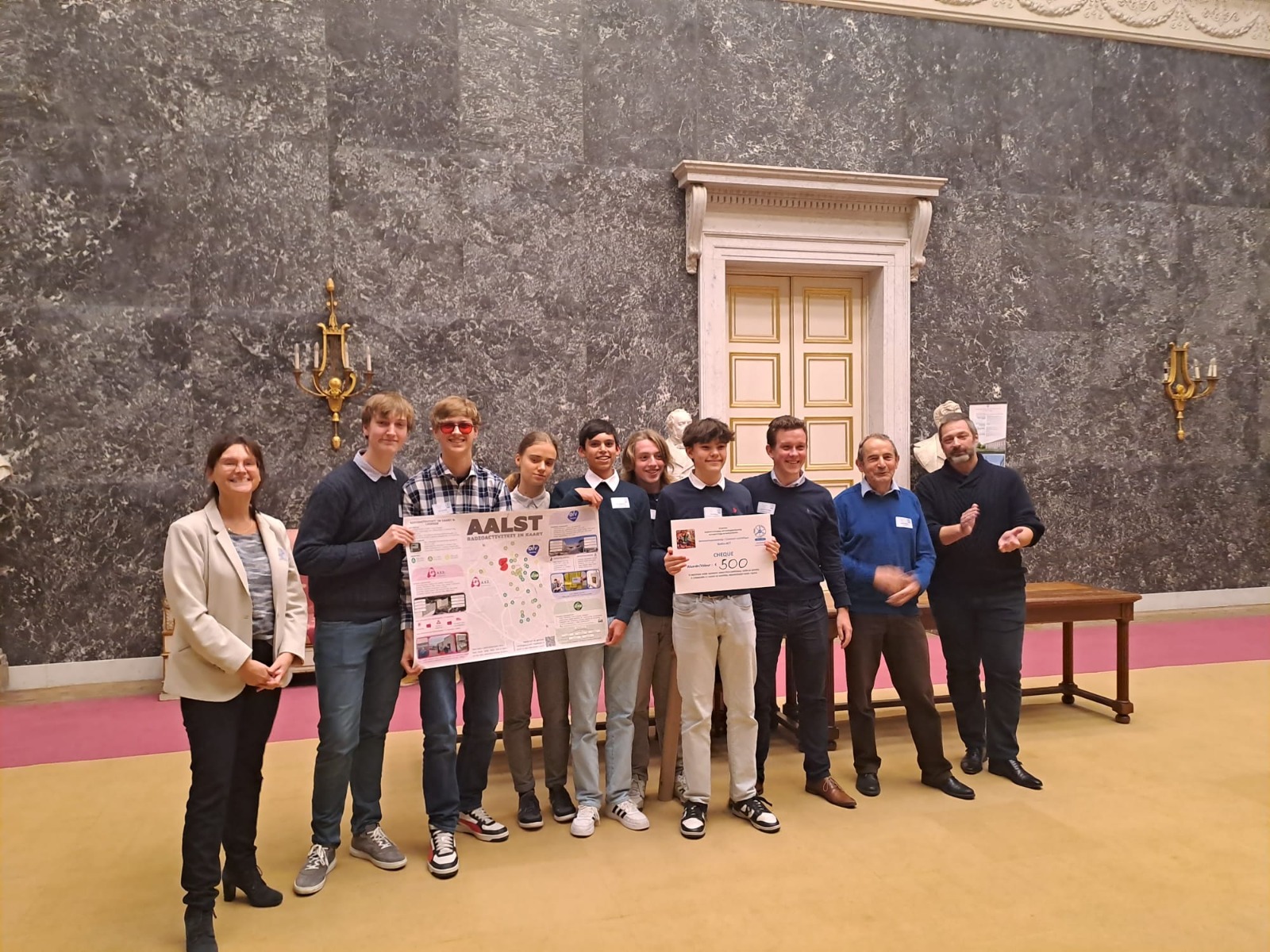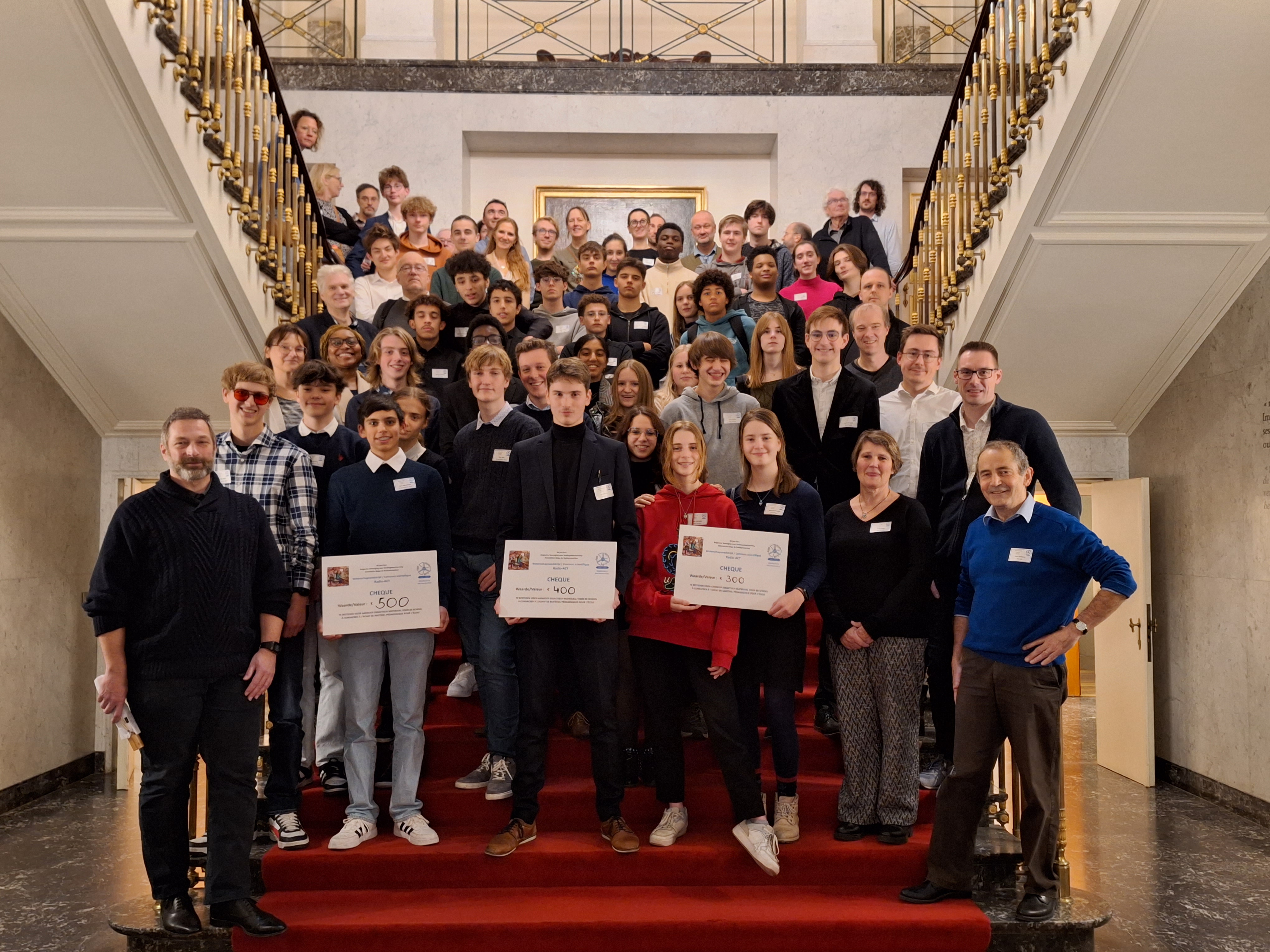-
RadioACT results !
 St. Maarten Instituut from Aalst has won the RadioACT! competition. The science competition was organised by the Belgian Society for Radiation Protection (BVS-ABR) on the occasion of its 60th anniversary. With the competition for young people from the third grade of secondary education, the association wants to draw attention to the challenges in radiation protection and at the same time get young people excited about choosing a study and a later career within the field.
St. Maarten Instituut from Aalst has won the RadioACT! competition. The science competition was organised by the Belgian Society for Radiation Protection (BVS-ABR) on the occasion of its 60th anniversary. With the competition for young people from the third grade of secondary education, the association wants to draw attention to the challenges in radiation protection and at the same time get young people excited about choosing a study and a later career within the field.During the month of October, students could work out a solution to a problem statement of their choice. The winners chose to investigate radioactivity in their hometown Aalst. Other groups worked on themes such as space travel, medical applications, the discharge of radioactive substances and the impact on humans and the environment.
Pierre Kockerols, chairman of the BVS: "With this competition, we wanted to bring together people from different generations but with shared interests. We hope that with this initiative we have been able to inspire young people and raise awareness of our field. Who knows, maybe they will take up the torch from us in a few years' time."
A six-member panel of experts in radiation protection judged the various entries. The suspense remained until the last minute, as participants were also able to vote in the final, which was taken into account in the final total.
The podium was ranked as followed:
1 Sint-Maarteninstituut (Aalst) - Radioactiviteit in kaart: Onderzoek in zorgstad Aalst
2 IPES (Tubize) - Projet Rad-IA: Intelligence artificielle et radiothérapie ? Pourquoi pas ?
3 MAST (Brugge) - Welke impact zou een plutoniumbom (type Trinity) in België hebben, wanneer die in Brussel valt en hoe kunnen we ons beschermen tegen de vrijgekomen straling?The winners and their class will enjoy a guided tour of Tabloo, the visitor centre of the National institution for radioactive waste and enriched fissile materials (NIRAS-ONDRAF) in Dessel. At Tabloo, they can learn more about radioactivity, radioactive waste and the search for new nuclear applications. In addition, the first three teams will receive a cash prize that will enable them to purchase educational materials for the classroom.
More info about the contest, including photos and videos.
